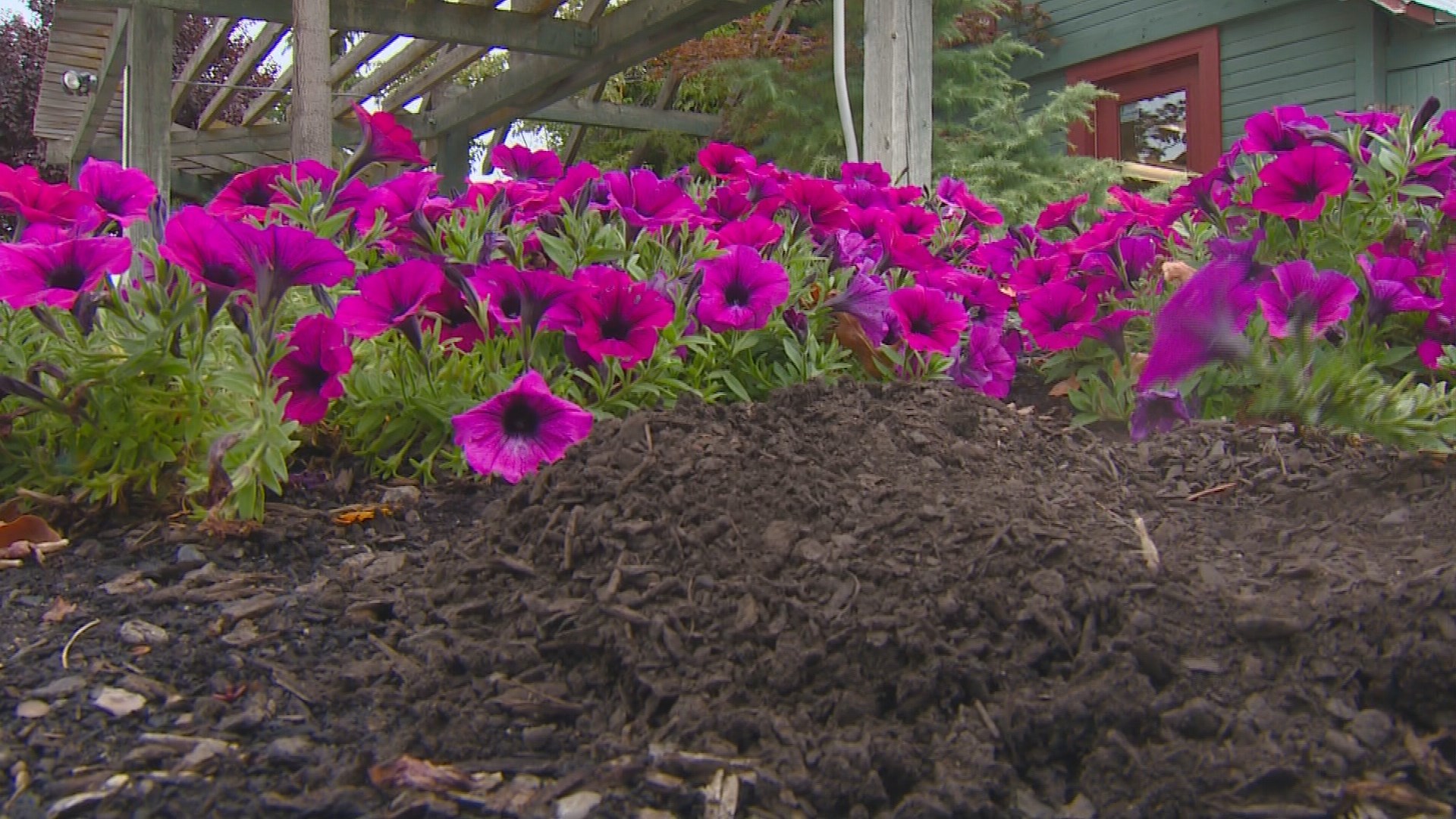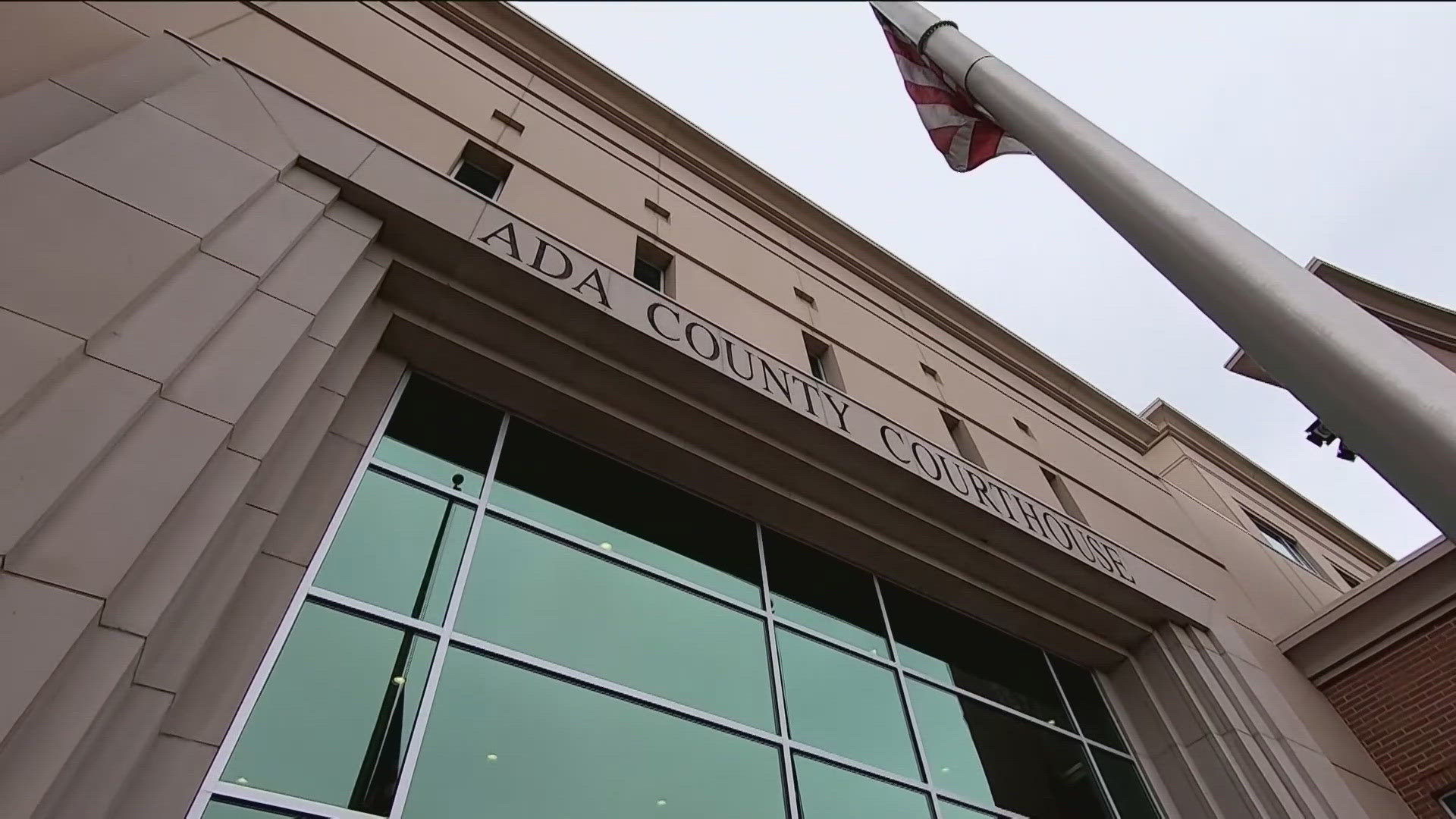BOISE -- Fall is a great time to add mulch to your garden and flower beds.
Not only does it look good, but it also improves the soil and prevents weeds from coming up in the spring.
Today on "You Can Grow It," Jim Duthie shows us some different kinds of mulches that are available and the benefits they bring to the garden.
Fall is here and winter is fast-approaching, so putting down a layer of mulch in your gardens and flower beds can have some real benefits.
"Well, there's wood-based products that you want to use, and fall is a great time to do that, as well as spring," said Seneca Hull with Franz Witte Nursery.
The main point generally is to keep weeds from coming up. And also to either enhance the soil, like if you were using a compost or something like that. Or at least to keep that moisture in the soil, keep the soil cool in the summer, and protect your plants in the winter."
Most organic mulches that you find at garden centers are wood-based products.
"Correct. What we sell mainly are things like bark mulches, and there's different sizes, different types. And then compost, which is mostly what we sell as far as a mulch for compost, is a wood-based compost," said Hull.
"People do use rock mulches around here as well. That does again keep the weeds down and things like that, but it creates a lot of heat in the summer. And it just doesn't really give you that opportunity to go out and dig in the dirt very well."
"With a lot of the mulches that you buy around here, they actually come out of our mountains."
"So this is called a Cascade compost. And it is broken down from the mill up in Cascade. It's actually a wood-based product. And you can see it's very fine. It's almost dirt-like."
So this is natural compost, so unlike just something you would put down to cover to keep weeds from coming up or something, this will actually be amending the soil?" asked Jim.
"Right. And we use it both to amend and also as a layer on top, because as it rains or your sprinklers go off, that compost is going to soak into the soil and the organic, everything your plants like, is going to be put into the soil as well, and it kind of just turns into soil," said Hull.
But keep in mind that it is a light-weight material, so heavy rains may wash it away, especially if it's on a slope.
"Yes, especially on hillsides and things like that, it tends to wash off a little bit easier," she said.
"This is a shredded material. The good thing about this is, especially on a windy slope or something like that, that's when it tends to bind really good so it's not going to blow away."
"This one is called chunk bark. And it does have some shredded material in it which is good to help it bind."
"This is just a nice little decorative, very pretty… it's not necessarily going to break down and go into the soil very quickly."
"But it's going to hold the moisture in and it's going to keep the weeds out and really just kind of make it look nice and finished."
Two to three inches of mulch is sufficient to block weeds and hold the moisture in. Too much more will prevent oxygen from getting to the plant and the roots.
"So this is great as a topical, but it's also great for mixing in with your soil," said Hull. "Because once they're broken down, they're going to add that organic material to your soil."
Since we'll all be raking up leaves soon, they can also be used as a mulch, although it's best to compost them first so they will break down faster into the soil.


![mulch flowers [ID=17328941]](http://www.gannett-cdn.com/-mm-/33d97f8a03d5ea06baca0f7a30eca34c8bd87643/r=500x281/local/-/media/KTVB/None/2014/10/15/635489985686930006-mulch-flowers.JPG)
